- Home
- Noelle Adams
Listed: Volumes I-VI
Listed: Volumes I-VI Read online
LISTED
NOELLE ADAMS
This book is a work of fiction. Names, characters, places, and incidents are the product of the author’s imagination or are used fictitiously. Any resemblance to actual events, locales, or persons, living or dead, is coincidental.
Copyright © 2013 by Noelle Adams. All rights reserved, including the right to reproduce, distribute, or transmit in any form or by any means.
The author acknowledges the trademarked status and trademark owners of the following wordmarks referenced in this work of fiction: Coke (Coca-Cola), Porsche, Tylenol, Advil, Jeep, Tiffany & Co., and Dom Pérignon.
CONTENTS
ONE
TWO
THREE
FOUR
FIVE
SIX
SEVEN
EIGHT
NINE
TEN
ELEVEN
TWELVE
THIRTEEN
FOURTEEN
EPILOGUE
DELETED SCENES
EXCERPT FROM SALVATION
ABOUT THE AUTHOR
ONE
Emily Brennan felt sick, and it wasn’t from the virus.
She knocked on the door that adjoined her hotel room to Paul’s, fidgeting until she realized what she was doing.
Forcing her body to relax, she told herself she had no reason to be nervous.
She had absolutely nothing to lose.
Yes, this was a crazy idea. Yes, even a couple of weeks ago, she never would have dared to do it. Yes, it meant asking someone for help, when she’d spent most of her life trying to be self-sufficient. And, yes, she was potentially setting herself up for consummate humiliation.
But if this conversation turned out to be an embarrassing nightmare, she had only three months left to live with it.
It was still early, not even seven yet, but she wasn’t surprised when Paul Marino opened the door, already fully dressed in jeans and a charcoal gray t-shirt that matched his eyes. He had dark hair, with classic features and a lean, athletic body. As always, he managed to look cool, sexy, and expensive, even first thing in the morning.
From the state of the desk near the window looking out on the harbor, he’d evidently been up for a while. A few months ago, she never would have pegged him for an early riser.
“Good morning,” he said with a little smile. “You’re up early.”
She hated that gentle expression in his eyes as they rested on her face. He’d never looked at her that way before she’d been diagnosed with this mystery virus, and now he never looked at her in any other way.
She knew what the look meant. He felt sorry for her—because she was going to die.
She didn’t want his pity, although she would use it if she had to.
“Couldn’t sleep.”
Yesterday, she’d had an appointment with the last of the viral specialists Paul had found for her—this one in Baltimore. When this doctor’s prognosis was exactly the same as the others, she’d accepted that there wasn’t any hope.
They’d seen what this virus had done to Emily’s aunt, and they knew all the treatments that hadn’t worked, that hadn’t even touched the relentlessly progressive illness. They couldn’t isolate the virus, so there was no hope of developing an anti-viral medication.
No one knew how Emily or her aunt had contracted this virus, but all the doctors agreed it was terminal.
So Emily had stayed awake all night, deciding what to do in her last three months.
She could sink into depression at the brutal injustice of the universe. She could, in desperation, cling to a futile hope for a cure.
Or she could live, for the little time she had left.
She saw room service had brought Paul a cart with coffee, fruit, and pastries, so she went to pour herself a cup of coffee. Before this last month, she’d never stayed anywhere as luxurious as this hotel, but Paul always traveled first class.
They might have grown up in the same South Philly neighborhood, but their lives had always been miles apart. Even before he’d left town for an Ivy League college, Paul hadn’t looked or sounded like he was from the neighborhood.
“How do you feel?” he asked. He’d returned to his seat at the desk.
“Fine.” With the exception of two short-lived, low-grade fevers, she hadn’t had any obvious symptoms.
Her aunt had never had any symptoms except intensifying fevers, and the last fever had killed her.
Emily sat down with her coffee in a chair near Paul, and he turned in her direction, leaning forward with his elbows on the armrests. He obviously could tell she had something to say.
She considered herself fairly brave. Others had even called her tough. She’d grown up mostly taking care of herself, tackling any hurdle that got in her way. She balked, though, at the realization of what she was about to do.
Proposing marriage to a man who didn’t love her, who wasn’t even really her friend, just wasn’t something a girl faced every day.
Instead of getting straight to the point, she stalled for a minute, nodding toward the laptop and piles of papers on the desk. “What are you working on?”
Unlike Emily, Paul was born into money—the son of a department store heiress and an organized-crime boss. Paul hadn’t taken money from his father in ten years, but he still hadn’t worked a day in his life.
“I was looking for another doctor to—”
“No,” Emily interrupted sharply. “We talked about this yesterday. No more doctors. No more specialists. No crazy treatments that will keep me in the hospital and have no chance of working. Aunt Mary had to go through all that, and she was miserable for the last weeks of her life. I’m not going to do it too.”
Emily felt a little queasy at the thought of her aunt, who’d worked for two decades without incident as a security guard before dying in terrible pain from something as seemingly harmless as a virus. She and her aunt hadn’t been that close, but they were family and they’d tried to take care of each other this last year.
Now, Emily had no one left.
Paul’s features twisted slightly, as if he were suppressing an instinct to argue. Instead, he said quietly, “You can’t just give up.”
He wasn’t a quiet man. He could talk his way out of any sort of trouble and into any woman’s bed. She assumed he was restraining his natural charisma because he thought she was too delicate to handle it. It was annoying but not something she could deal with now.
“I’m not giving up.” About this she was sure, so she didn’t waver or hesitate in her response. “I’m making a conscious choice about how to spend my last three months.”
“All right. It’s your choice. So what do you want to do?”
“I want to live.” Despite her attempt at self-possession, her voice cracked on the last word. She swallowed over the lump and hoped Paul hadn’t noticed.
Evidently, he had. His handsome face was briefly torn between pity and discomfort.
They’d known each other all their lives from the neighborhood, but Paul was six years older than her, and they’d run in very different circles. He wouldn’t be any more comfortable with this intimate conversation than she was.
If hadn’t needed her to testify against his mob-boss father, who was being brought up on federal charges, then she wouldn’t be more than a brief blip on his radar.
“Of course, you want to live. If you’ll just let me look for more options—”
“There are no options. You’ve done what you can, and I really appreciate it. But I’m not expecting you to save me.”
“I promised to protect you when you refused witness protection. Do you think I’d go back on my word?”
She briefly wondered how Paul Marino—bad-boy prince of the
ir community, who’d spent most of his life playing around, chasing thrills, and getting in trouble—was so utterly serious right now. With her. About her.
Not out of affection, but because he’d decided sometime in the last six months that his father should be in prison.
He needed her to testify. That actually worked in her favor, given what she was about to ask him.
“Yeah, I know that.” She pitched her voice as light and ironic on purpose, since this was another topic that made her uncomfortable. She wasn’t sure what to do with Paul’s somewhat paranoid suspicions regarding his father. Everyone else seemed to understand Vincent Marino better than his own son did. “But you were talking about protecting me from garrote-wielding wiseguys, who might try to off me before I can snitch on your dad.”
“Don’t laugh it off.” He sounded annoyed for the first time that morning. “He might pretend to be civilized, but he’s the same kind of thug his father was. You don’t know him like I do. He’s perfectly capable of—”
“I believe he’s capable of violence, and I have no doubt he’s arranged to have people killed. But only…only soldiers. He’s old-school. He’s not going to kill a teenage girl from the neighborhood. Or his son.”
“I’m not convinced of that.”
She was silent, wondering if Paul, with his privileged life and innate entitlement to anything he desired, really believed his own father was so completely ruthless.
“He burned down your house,” he added.
“When no one was in it.” She made the comment offhand, but she didn’t feel that way. She’d loved the old row house where she’d lived most of her life. There wasn’t anything left to salvage after Marino’s men had burned it down as a warning to keep what she knew about him to herself.
The irony was, if he hadn’t burned down the house, she never would have decided to testify against him. South Philly wasn’t what it used to be, but there was still a lingering community loyalty that Emily would have intuitively fallen back on. She didn’t like to be bullied, though, and her instinct was always to resist any attempt to control her.
Vincent Marino had tried to do both.
“I don’t want to get into this argument again.” She rubbed her face and tried to focus on the matter at hand. “The point is that I was fine with you hiring a bodyguard to follow me around, but you can’t protect me from this. No one can.”
She felt vulnerable again, so she shifted in her seat, distracting herself by scanning the papers on the desk.
She noticed something that struck her as strange. “What is this?” she asked, picking up a legal pad with Paul’s scrawlings on it. “This doesn’t look like research on viral specialists—”
She broke off abruptly when he snatched the pad out of her hand.
“What is that?” she persisted, despite Paul’s annoyed scowl. “Why are you researching biological weapons?”
He tightened his lips, as if he wasn’t going to answer. Then he must have remembered she was dying and must be humored, since his face relaxed and he let out a sigh. “You know my father traffics in drugs and arms—anything with a high profit margin. The weapons he deals in aren’t just guns and missiles. I know he’s been interested in biological weapons for a while, and I was wondering… This virus seems like a strange coincidence, and since your aunt was going to testify against him too and she worked in his research facility…”
Emily gasped. “You can’t be serious. You think he gave us this virus? Paul, that’s totally paranoid. I know he’s a criminal, but he’s not some diabolical mastermind.” Her opinion of Vincent Marino was what the neighborhood’s view had always been, and nothing in her experiences this year had changed it. “Besides, my aunt didn’t have important testimony to give. She was just going to confirm that I was bringing her a snack when I overheard that conversation. She didn’t know anything worth killing over.”
He obviously disagreed and wasn’t happy with her vehement response, but he nobly suppressed his instinct to argue with the sick girl. “I’m not assuming you were given the virus on purpose. Maybe it was accidental contamination.”
“But it doesn’t spread from person-to-person contact, so both she and I would have had to be directly exposed. I don’t see how that could be possible.”
It wasn’t an idea she’d considered before, so her voice was slightly distracted as she thought over the possibility.
After a minute, she concluded it was ridiculous to entertain such unlikely notions, and Paul was just indulging paranoid fantasies. All the doctors agreed that this virus was going to kill her, so she wasn’t going to clutch at vapors of hope.
She was suddenly swallowed up in a surreal haze—as if the elegant room, the broad expanse of harbor-view out the window, and Paul’s tense, attractive face had transformed into an alien landscape, where nothing was normal, nothing was safe.
She couldn’t believe she only had three months to live. She wasn’t even eighteen yet.
But there was still something she could do, accomplish, complete before her life was over.
With that in mind, she said, “Anyway, back to the point. When I said I want to live, I didn’t mean I want to find a miracle cure. I’m not stupid enough to think there’s one out there. I mean, for my last three months, I want to live. Most of my life, I’ve been trying to just scrape by, with no time between work and school to even have any fun. I kept thinking, when I’m finally…” She exhaled, vaguely embarrassed by the confession. She wasn’t in the habit of making herself vulnerable, particularly with Paul Marino. “I kept thinking, when I finally get settled, I could relax and do some of the things I want. I just hadn’t gotten there yet. I don’t want it to be too late. I don’t want to die before I do them.”
From the outside, her life probably looked pretty bleak—with her mother on the street somewhere, in a downward spiral of drug addiction, and her dad pouring himself into his doomed corner store until he finally worked himself into a heart-attack two years ago. But she’d always had a place to live, and she hadn’t been unhappy. She had plenty of friends, she was saving up for college, and she didn’t mind being mostly on her own.
Until she’d accidently overheard a private conversation of Vincent Marino’s, she’d had a perfectly good life.
“I see,” Paul said, his expression softening as if he understood what she was trying to say. “That makes sense. How can I help you?” He had that deep magnetism in his gaze—that made whomever he spoke to feel like he was completely invested in the conversation, like there was a weight to his regard beyond normal social interaction.
She wasn’t surprised so many women were crazy about him. Just by looking at them, he could make them feel like they were the only important person in the world.
She was nervous again now. Her heart raced. If she’d had more than three months to live, she never would have dared to do this.
But what exactly did she have to lose at this point?
So she came out and said it. “You can marry me.”
It was a tribute to his self-possession that Paul reacted with only a blink.
Since she didn’t want him to say no before she explained, she hurried on, “I don’t want to spend my last few months in hospitals. And, to tell you the truth, I’m not sure I want to spend my last days as a witness in a long, drawn-out, criminal trial.”
Paul stared at her for a few seconds before he glanced away, out at the view of the harbor. “I see.” She could tell he was trying to keep his calm composure.
Like she was a frightened rabbit who might flee at any sudden move.
“I can understand that too,” he continued, looking back at her. “And I won’t object if you decide you can’t testify. It was always your choice, and I appreciate your willingness when circumstances were different.”
“Well,” she said, with an attempt at her old smile, the one everyone said was her best feature, “I was hardly doing it for you. It was that or let your dad bully me. And I’m not saying I won’t tes
tify. I know putting your father in prison is the most important thing to you right now.”
Paul opened his mouth like he would respond, but no sound came out.
“But I hope you’ll acknowledge it’s a sacrifice for me to do it and maybe offer me something in return besides protection.”
“This is where the, uh, marriage comes in?”
She nodded and pulled out of the pocket of her hoodie sweatshirt a wrinkled piece of paper that had been folded three times. “Every year, when I was a kid, I would write a list. People call them ‘bucket lists’ now, but I’d never heard that term. It was just a list of things I wanted to do before I died. My ideas kept changing, so I kept writing new ones. This is the last one I wrote, when I was twelve.”
That gentle look was in Paul’s eyes again—the one she really hated. “Of course. I’m happy to help you do as much on your list as I can, but I can’t believe that marrying me was ever on your list.”
She snorted in tired amusement. “No. You were never on my list, but I did have one thing that was always at the top of every list I ever wrote.” She unfolded the paper, smoothed it out, and handed it to him.
Paul took it and silently read what she knew was at the top of the page, written in large, feminine script. “Get married.”
He closed his eyes briefly and took a slow breath. Then he pinned her with that focused gaze. “Emily, I understand that you always wanted to get married, but I’m just not the best candidate.”
“You’re the only candidate. If I’m going to get married before I die, it has to be to you.”
He reflected for a minute before he spoke. “What about that soccer player friend of yours? Laura’s brother. Chris? Isn’t he the one you always had a crush on?”
She sucked in a sharp breath. “How did you know?”
“It was fairly obvious.”
Her cheeks flushed painfully, even at his light tone. “Yes. If it could somehow work out, I’d consider him. But his parents wouldn’t let him, even if he agreed. He’s got another year left in high school, since he didn’t graduate early like me. Plus, he’s traditional. He takes marriage really seriously.”

 In Want of a Wife
In Want of a Wife The Return (Second Chance Flower Shop Book 1)
The Return (Second Chance Flower Shop Book 1) Second Best, #1
Second Best, #1 The Mission
The Mission Temp
Temp The Return
The Return Stranded in the Woods
Stranded in the Woods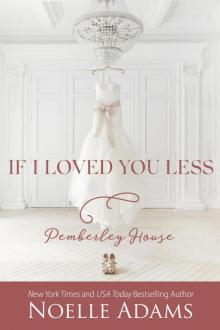 If I Loved You Less
If I Loved You Less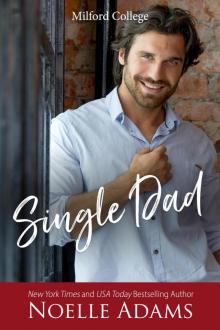 Single Dad
Single Dad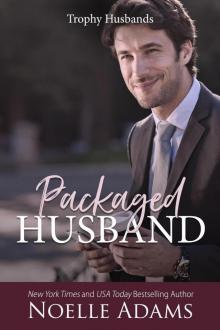 Packaged Husband (Trophy Husbands, #3)
Packaged Husband (Trophy Husbands, #3) Stranded in the Woods (Holiday Acres Book 3)
Stranded in the Woods (Holiday Acres Book 3)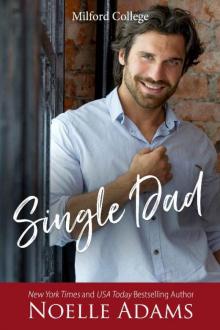 Single Dad (Milford College Book 3)
Single Dad (Milford College Book 3) The Rebound
The Rebound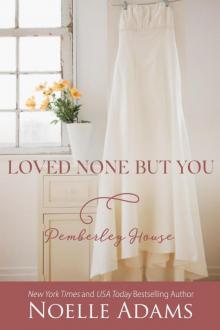 Loved None But You (Pemberley House, #3)
Loved None But You (Pemberley House, #3) Living with Her Fake Fiancé (The Loft Book 3)
Living with Her Fake Fiancé (The Loft Book 3) Stranded in the Snow
Stranded in the Snow The Reunion (Second Chance Flower Shop Book 3)
The Reunion (Second Chance Flower Shop Book 3) Secret Santa (Milford College Book 4)
Secret Santa (Milford College Book 4) Stranded on the Beach
Stranded on the Beach The Remake
The Remake Carpool (Milford College, #1)
Carpool (Milford College, #1) Secret Santa
Secret Santa Christmas Bride (Convenient Marriages Book 5)
Christmas Bride (Convenient Marriages Book 5)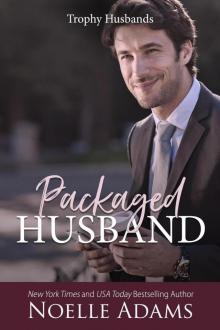 Packaged Husband
Packaged Husband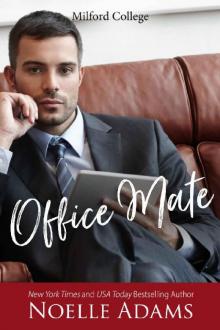 Office Mate (Milford College Book 2)
Office Mate (Milford College Book 2) CourtShip
CourtShip Carpool
Carpool The Mission (Bad Bridesmaids Book 2)
The Mission (Bad Bridesmaids Book 2) Third Life
Third Life Christmas Bride
Christmas Bride Living with Her Ex-Boyfriend (The Loft Book 2)
Living with Her Ex-Boyfriend (The Loft Book 2) Christmas with a Prince
Christmas with a Prince The Rebound (Second Chance Flower Shop Book 2)
The Rebound (Second Chance Flower Shop Book 2) Wrong Wedding
Wrong Wedding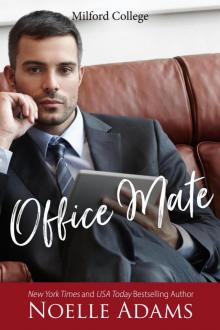 Office Mate
Office Mate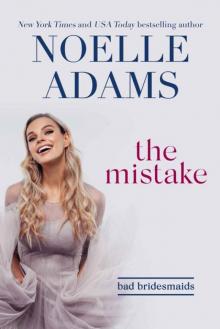 The Mistake (Bad Bridesmaids Book 1)
The Mistake (Bad Bridesmaids Book 1) Stranded for Christmas
Stranded for Christmas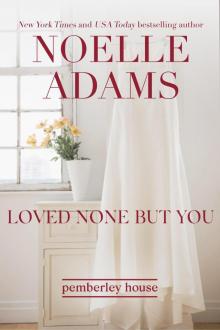 Loved None But You
Loved None But You A Princess for a Bride (Rothman Royals Book 2)
A Princess for a Bride (Rothman Royals Book 2) Untouched (One Fairy Tale Wedding, #2)
Untouched (One Fairy Tale Wedding, #2) Retreat
Retreat Just Friends: Two Friends-to-Lovers Stories
Just Friends: Two Friends-to-Lovers Stories One Night in the Ice Storm
One Night in the Ice Storm Temp (Milford College Book 5)
Temp (Milford College Book 5) Living with Her Ex-Boyfriend
Living with Her Ex-Boyfriend Holiday Heat
Holiday Heat Falling for her Brother's Best Friend (Tea for Two Book 1)
Falling for her Brother's Best Friend (Tea for Two Book 1) Intimate
Intimate Married for Christmas (Willow Park)
Married for Christmas (Willow Park) Bittersweet
Bittersweet Untouched
Untouched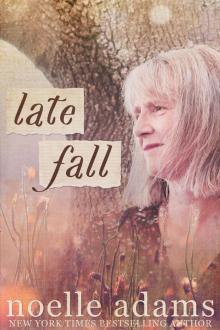 Late Fall
Late Fall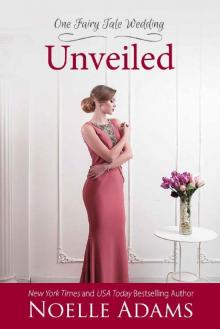 Unveiled (One Fairy Tale Wedding Book 3)
Unveiled (One Fairy Tale Wedding Book 3) Reconciled for Easter
Reconciled for Easter Her Reluctant Billionaire
Her Reluctant Billionaire Salvation
Salvation Seducing the Enemy (Entangled Indulgence)
Seducing the Enemy (Entangled Indulgence) Married by Contract
Married by Contract Royally Wed: a Romance Duet
Royally Wed: a Romance Duet Seducing Her Brother's Best Friend (Tea for Two Book 3)
Seducing Her Brother's Best Friend (Tea for Two Book 3) A Princess Next Door (Rothman Royals Book 1)
A Princess Next Door (Rothman Royals Book 1) Winning her Brother's Best Friend (Tea for Two, #2)
Winning her Brother's Best Friend (Tea for Two, #2) Playing the Playboy
Playing the Playboy A Princess in Waiting (Rothman Royals Book 3)
A Princess in Waiting (Rothman Royals Book 3) Stranded for Christmas (Holiday Acres Book 4)
Stranded for Christmas (Holiday Acres Book 4) Loving the Bodyguard
Loving the Bodyguard Stranded on the Beach (Holiday Acres Book 1)
Stranded on the Beach (Holiday Acres Book 1) Chasing Jane
Chasing Jane Love for the Holidays (five book Christmas bundle)
Love for the Holidays (five book Christmas bundle) Listed: Volume V
Listed: Volume V A Family for Christmas (Willow Park #3)
A Family for Christmas (Willow Park #3) Listed: Volumes I-VI
Listed: Volumes I-VI Trophy Wife
Trophy Wife A Negotiated Marriage
A Negotiated Marriage A Baby for Easter
A Baby for Easter Home for Christmas (Willow Park #5)
Home for Christmas (Willow Park #5) Unguarded (One Fairy Tale Wedding, #1)
Unguarded (One Fairy Tale Wedding, #1)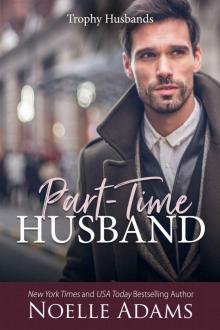 Part-Time Husband
Part-Time Husband Seducing Her Brother's Best Friend
Seducing Her Brother's Best Friend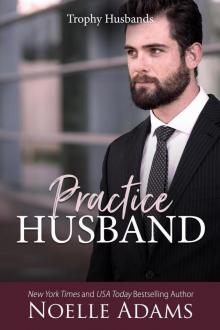 Practice Husband
Practice Husband Road Tripping
Road Tripping Accidental Bride (Beaufort Brides #3)
Accidental Bride (Beaufort Brides #3) Retreat (Balm in Gilead Book 3)
Retreat (Balm in Gilead Book 3) Seducing the Enemy
Seducing the Enemy A Baby for Easter (Willow Park)
A Baby for Easter (Willow Park) One Night with her Bodyguard
One Night with her Bodyguard Speed Dating (Preston's Mill Book 2)
Speed Dating (Preston's Mill Book 2) Living with Her Ex-Boyfriend (The Loft #2)
Living with Her Ex-Boyfriend (The Loft #2) CourtShip (Best Friends Book 1)
CourtShip (Best Friends Book 1) Complicating (Preston's Mill Book 3)
Complicating (Preston's Mill Book 3) One Week With Her Husband (Eden Manor Book 3)
One Week With Her Husband (Eden Manor Book 3) One Night with her Boss
One Night with her Boss Excavated
Excavated One Night with her Best Friend
One Night with her Best Friend Roommating (Preston's Mill #1)
Roommating (Preston's Mill #1) Bay Song
Bay Song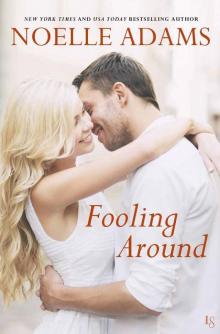 Fooling Around
Fooling Around Stripping the Billionaire
Stripping the Billionaire Revival
Revival Loving the CEO (bundle of five romance novels)
Loving the CEO (bundle of five romance novels) Christmas at Eden Manor
Christmas at Eden Manor Hired Bride
Hired Bride Engaging the Boss (Heirs of Damon)
Engaging the Boss (Heirs of Damon) Living with Her One-Night Stand (The Loft, #1)
Living with Her One-Night Stand (The Loft, #1)